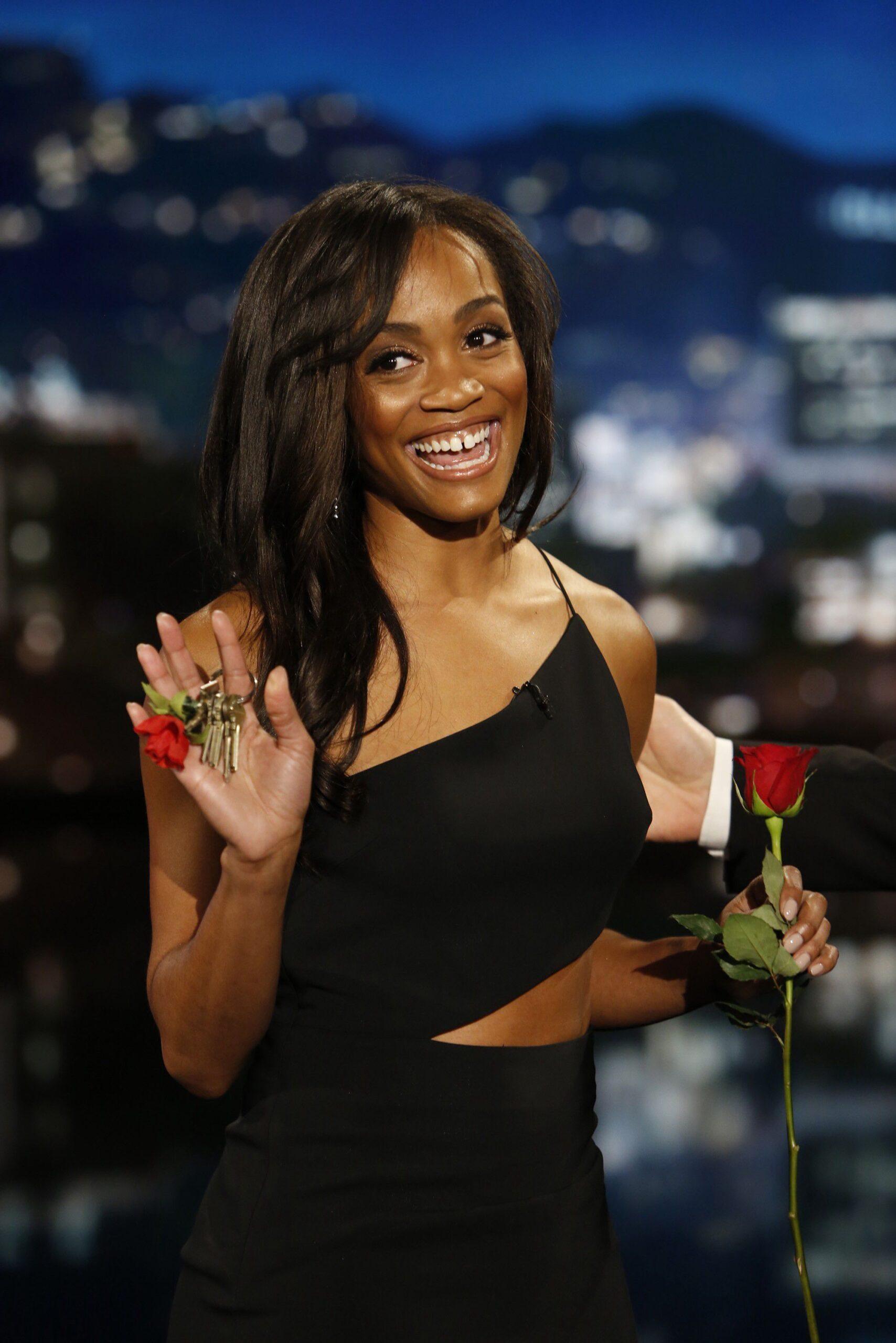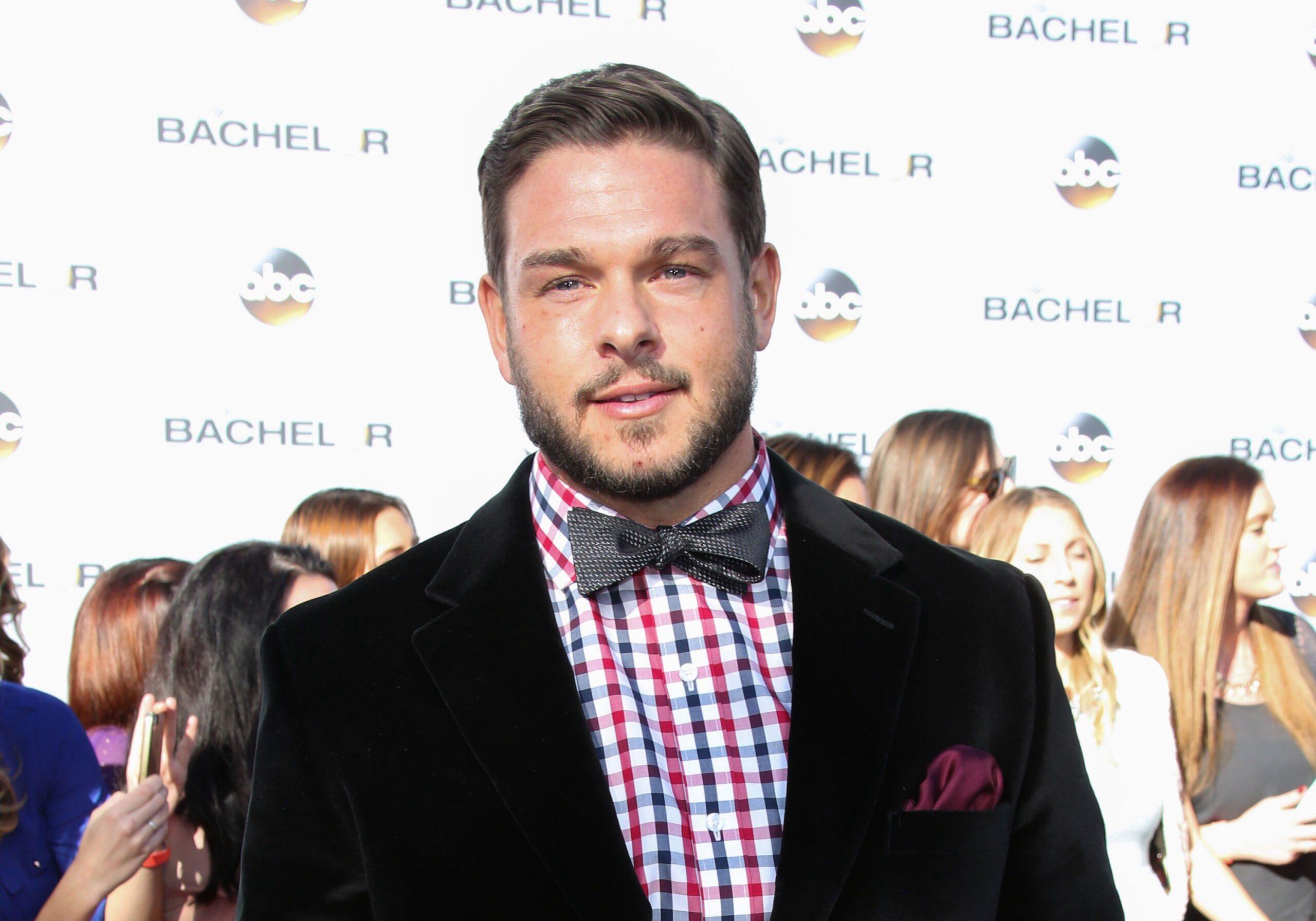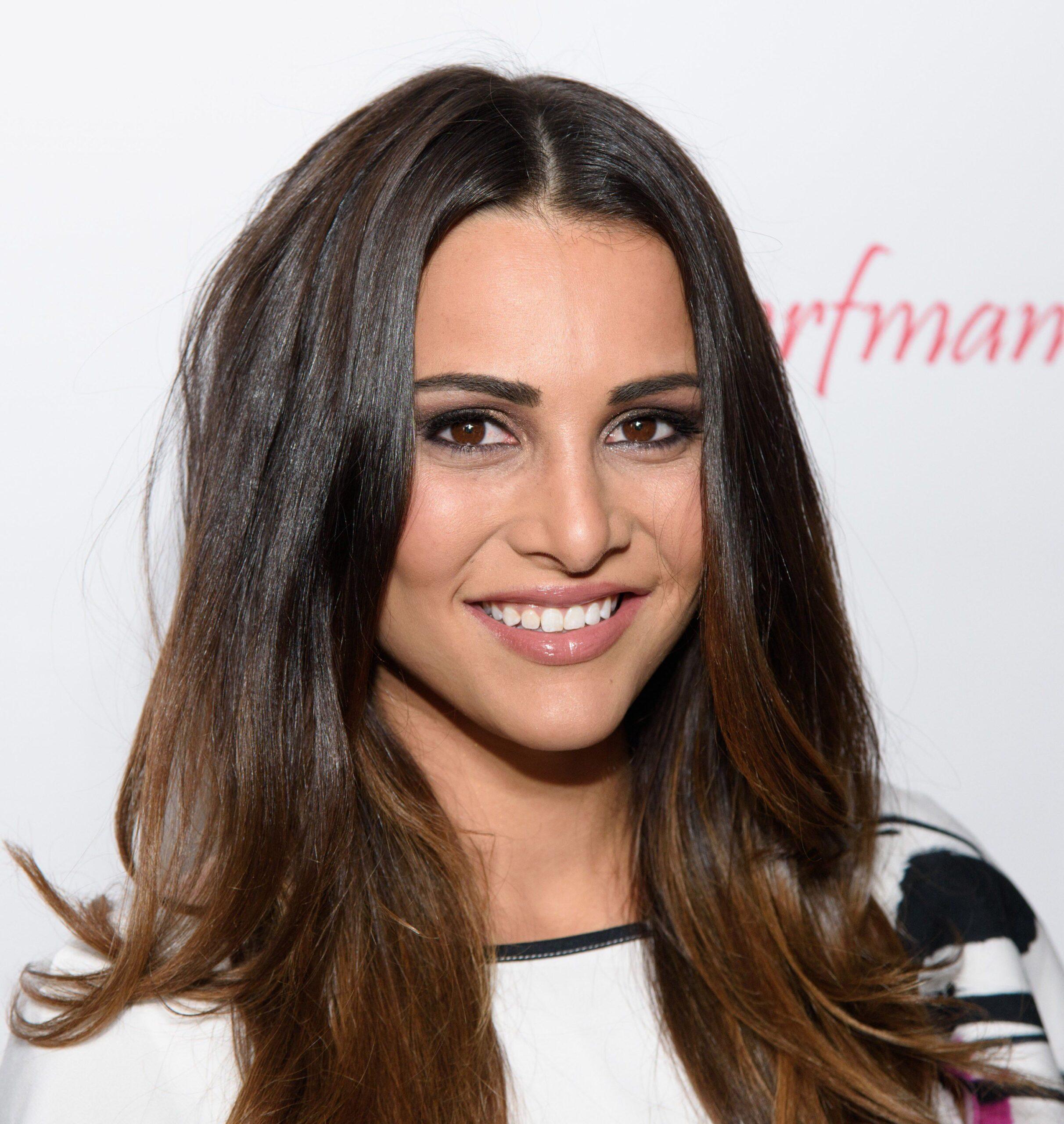On Sunday, legal drama The Good Fight debuted on CBS and rehashed all the hallmarks of attorneys on TV. "Look at the person next to you," one lawyer intoned to a firm’s new recruits. "They are your competitor. Do better than them or you’re gone." Stressed-out associates sifted through depositions and broke down in bathroom stalls. Seasoned litigators called out objections across conference-room tables and messed with the minds of opposing counsel. Partners squabbled over equity and capital contributions. Years of TV have taught us that this is what lawyering is like.
The next night, on ABC, The Bachelor gave us a more laid-back look at the law. Still-active contestant (and Bachelorette-to-be) Rachel Lindsay, a 31-year-old associate at litigation firm Cooper & Scully, didn’t do any work. Instead, she went on an all-day date in her native Dallas, spending what could have been billable hours on a trip to church and a family dinner with her part-time, polyamorous beau — the Bachelor, Nick Viall.
Lindsay’s legal career isn’t TV fiction. The daughter of a district judge, descended from "a family of trial lawyers," she got her law degree from Marquette in 2011 and practiced sports and criminal law before accepting her current role in "civil … defense … litigation," as Viall painstakingly pronounced it on the premiere.
Lindsay’s legal bona fides stand out on a season whose cast’s occupations range from the vague ("business owner") to the predictable ("model") to the eccentric ("aspiring dolphin trainer"). An accomplished professional, she’s the oldest contestant on a show that skews toward 20-somethings with weaker résumés. In light of Lindsay’s clear competence, legal blog Law Newz likely wasn’t alone when it wondered, "What is This Smart, Well-Educated Attorney Doing on The Bachelor?"
It’s a question one could ask about any of the unfailingly attractive attorneys who appear on ABC’s romance mills. Lindsay’s Bachelor bio, naturally, suggests she’s just looking for love, listing her biggest regret as "focusing too much on my career" and confessing that her greatest fear is "[missing] out on my chance at finding love." But why go through the trouble of attending (and paying for) law school, studying for the bar exam, and landing a job in a competitive field, only to take up to two months off for an unpaid appearance on a show that might make you look extremely unlawyerly? And apart from the why, there’s the how: Try to picture an associate asking The Good Fight’s Diane Lockhart or David Lee for permission to take a dating break.
Jason Resmini, an entertainment and civil litigation attorney, was a short-lived contestant who went one and done on Season 6 of The Bachelorette. He had time to appear because his career had barely begun: His Bachelorette cameo came between taking the bar exam and finding out that he’d passed the test.
"I’m not sure how people do it," Resmini says via phone, referring to more established lawyers who drop their caseloads when The Bachelor(ette) comes calling. "If you’re up and running as a lawyer and kind of jump ship, I think it’s an impossibility. I don’t know how you do it at all, actually. I really don’t. Especially if you’re working for a corporation or a big firm, or any firm. I really don’t know too many big firms that would approve of that, for a multitude of reasons."

Despite the difficulties, though, attorneys keep finding paths to TV. Lindsay’s race makes her a rarity in The Bachelor’s traditionally whitebread world; she’s a reality TV trailblazer, the first black contestant to receive a first-impression rose or make the final four on The Bachelor and the first black Bachelorette. Bachelawyers, however, have been a franchise mainstay since The Bachelor Season 1, which aired in 2002 and featured two attorneys.
"At the time, reality TV was in its infancy," Season 1 contestant Lisa Gold, then a solo practitioner and now a general counsel at a manufacturing company, explains via email. "I wasn’t worried about the career impact because though I didn’t know how the show would be perceived or received, it seems as we were all there just to have fun and did not take it too seriously or too competitively. If you watched our season now, you would probably be bored."
Because The Bachelor wasn’t an established brand when she went on the show, Gold may have had a smoother approval process than the aspiring contestants who succeeded her. Her firm was supportive, even staging a watching party at the office when her lone episode aired. As for Resmini, while he had some concerns about giving ABC "complete control over [his] likeness on television," the career ramifications in his case were likely to be limited because he works for a family law firm with his father and two brothers. "I think if you’re [on TV] long enough, the odds of you looking great are not wonderful," he says.

Jessica Holcolmb discovered as much during her third-week exit from Season 5 of The Bachelor, in which she was tormented into tears by then–Bachelor producer Sarah Gertrude Shapiro, who later used the early-morning encounter as the basis for a scene in Unreal, the Lifetime show she cocreated. Holcomb was 24 at the time, and an attorney at Akin Gump Strauss Hauer & Feld, one of the country’s largest and most prestigious firms. She’d just broken up with her fiancé, which left her emotionally vulnerable, and she was also fatigued from an academic mad dash to graduate early from college and law school and start practicing at 23. When an email from The Bachelor arrived at her office, promising that replies from Akin Gump applicants would be forwarded directly to the casting director, her friends and fellow associates urged her to pursue the opportunity.
"Back then, I think they were specifically recruiting to fill certain boxes," Holcolmb says by phone, suggesting that the show was looking for lawyers, perhaps hoping to burnish the still-fledgling franchise’s rep. When she completed the casting process, her superiors signed off. "I think they thought it would be like a cool thing for the firm," she says.
Although she no longer regrets going on, Holcolmb was "very humiliated" in the immediate aftermath of her exit, which she believes contributed to her departure from the firm not long after she returned from filming. "When I came back to my law firm, for sure the writing was on the wall, like, this is not a good image for this huge, very prestigious law firm," Holcomb says. "I was very young, I was blond. I just didn’t fit. So that just kind of lent more to the partner[s’] stereotype of me."
Holcolmb says she knew she "needed to go find another job" and that she’s been happier since becoming in-house counsel, a role she still serves in today. "[The Bachelor] wasn’t the demise of my big-firm legal career, but it certainly didn’t help," she says.
Although Holcolmb’s brutal last scene made her Bachelor experience more traumatic than most, she doesn’t think appearing on the show is advisable for anyone with a career. "You get zero compensation, so then you go unpaid and then they tell you to get all these different clothes," she says. "So you do spend a lot of money, and then they don’t pay you at all. It’s unpaid leave from work, so financially it’s a stupid decision to make, for sure. Unless you aspire to be a reality TV star, it’s the dumbest thing ever. You should not do it. If you have any kind of real career, I would definitely say that it’s not a smart move."
Jonathan Vollinger, the infamous "fantasy suite guy," was the first contestant eliminated from The Bachelorette Season 9 after repeatedly propositioning Bachelorette Desiree Hartsock. He’s also a lawyer, and he admits to being on The Bachelorette for what many contestants (on camera, at least) would call the wrong reasons. "I went on the show because I, like every other contestant ever, was bored and thought it would be dope to be on television for a second," he says via email.
Vollinger wasn’t worried about his Bachelorette stunt hampering his legal career, because he never intended to have one. He wanted to work in real estate, and he moved to Austin and took a job in commercial real estate shortly after doing the show. He doesn’t believe that his brief Bachelorette notoriety hurt him. "Although the digital age has brought us content that lasts forever, it has also ushered in a generation with the memory of a goldfish," Vollinger says. "While I tried my best to humiliate myself during my brief appearance on the show — and don’t get me wrong, I certainly did so — I somehow managed to keep a majority of my friends and even launch a successful career."
Even so, Vollinger says he wouldn’t advise an attorney who isn’t seeking a career change to go on the show. "There is literally nothing to be gained, other than people recognizing you for about six months and having a nice conversation piece at your disposal when things get awkward and you have absolutely nothing better to say to someone," he says. "Best-case scenario: You don’t totally embarrass yourself. What? You got a free trip to Cabo? Cool story. Get a job and take a real vacation. What? You actually won the competition and you’re engaged now? Cool story. I’m sure you guys are still together. Worst-case scenario: You’re fired."
In talking to lawyers who’ve been Bachelor(ette) contestants, special circumstances — it was the first season; my career was just starting at my family’s firm; I didn’t want to be an attorney anyway — are a recurring theme. Cristy Caserta, a first-week elimination from The Bachelor Season 15, credits a small firm and a longstanding relationship with her bosses for getting the go-ahead to take time to appear on the franchise. "When I first started practicing I was at a larger firm, and then about two years in I started the firm with the guys that let me take off to go on the show," she says via phone. "So we were a smaller firm, which made it a lot easier. I had been with them since I was a law clerk, so I had a personal relationship with them as well, and they said as long as I was serious going into it and it wasn’t something I was just doing for fun or to BS, and that I actually wanted to go on to meet somebody, that they would be willing to give me the time off."

But not every Bachelawyer had an easy route to the mansion; some really have had to surmount something close to what Resmini calls "impossible" circumstances. Former federal prosecutor Michael Garofola made it to the seventh week of The Bachelorette Season 9 and later came back for Bachelor in Paradise despite starting his Bachelor run when he had what he describes as his "dream job" as an assistant U.S. attorney for the Southern District of Florida. Garofola had just gone through a breakup, and a few friends submitted his information to ABC, thinking the show would be therapeutic. Garofola’s job kept him busy enough that when he got the casting call, he didn’t think he could make it from Miami to Orlando for the interview, let alone take time off for the show. But he rearranged his schedule to try, and when he made it through the auditions, he asked for approval from U.S. Attorney Wifredo Ferrer, which he was "99.9 percent convinced" wouldn’t be granted. To his surprise, Ferrer fully supported him, but Garofola’s boss had to refer the request to higher powers. The wheels of the Justice Department turn slowly, even when reality TV is at stake.

"The fact that (1) I was not going to be paid, i.e., it was not ‘outside employment’ and (2) I was not going to be providing legal advice on the show meant that it was possible to participate, even as a serious Justice Department attorney," Garofola writes via email. "I worked out the temporary transfer of my caseload (about 75 cases) with the federal agents working my cases and with my deputies and the chief of the Criminal Division and Major Crimes and met with the ethics adviser, who approved and sent off my application for leave without pay to Washington, D.C. After about a week, I received a letter signed by the office of the U.S. attorney general, Eric Holder, granting me permission. Quite a lengthy process, and I have left out some of the more mundane and tedious steps."
Garofola wasn’t concerned about jeopardizing his dream job. "I knew there would be some backlash from the older generation of that legal community and the trolls on the Southern District of Florida blog, but I have never been one to worry about the opinions of others," Garofola says. "I was hazed on my return and a few of the judges busted my chops, but not in a mean-spirited way. … Ultimately, it did not hurt my legal career at all. I finished in the top five on the show, was well-received and went immediately back to work at the U.S. Attorney’s Office after being sent home. A few defense attorneys asked questions during voir dire in jury selection about my appearance on television, but that was about it."
By the time he got the invitation to Paradise, a federal pay freeze had sent Garofola to a general counsel role with a small petrochemical export company. His new partners urged him to return to TV, if only to have more footage to make fun of. "I’d say doing the show negatively impacted my love life more than my career, but I suppose that is a topic for another article," Garofola says.
Although Vollinger might be right that there’s nothing for contestants to gain in the legal arena by appearing on reality TV, newfound celebrity pays off for a few. As Resmini says, "That’s a long time to be potentially out of work. But if you end up winning this show, you’re probably not going to want to go back to being a lawyer anyway."

Leaving the law is one potential path for Rachel, the latest Bachelawyer. Her closest comp is Andi Dorfman, a former assistant district attorney who walked out on Season 18 Bachelor Juan Pablo after making the final three, then parlayed her fame from that decision into a starring role on The Bachelorette Season 10. Dorfman, too, initially doubted that work would let her leave. "I was definitely pleasantly surprised that I got the approval from work to go on the show," Dorfman says via email. "I think the fact that before I left I made sure to have my cases prepared so that my absence wouldn’t affect them and had a great team of colleagues who were luckily able to fill my void made it easier for me to be granted the leave."

Dorfman extended the unpaid leave of absence to be the first Bachelorette attorney, then quit when she finished the show. "It was a difficult conversation, but I was in such a great place in my life, or so I thought, and knew that the door was still open to eventually return to law when and if the time came," she says. Since then, she’s converted her Bachelor(ette) profile into a sizable social media audience, two book deals (one published, one forthcoming), personal appearances, and Instagram endorsements, while maintaining a close connection to the TV franchise.
It takes the right firm, the right boss, and the right timing for an attorney to swim in the same dating pool as an aspiring dolphin trainer. And even with all the logistical hurdles cleared, fear of what the firm will say once the footage airs can tongue-tie a contestant. "I told the producers that I had a profession to return to, so I wasn’t going to say or do anything that would come back to haunt me," Rudie Baldwin, a first-week cut from The Bachelorette Season 10, says via email. "I feel like that was why I was sent home so early. I wasn’t going to make good television for them."
But a legal background can benefit Bachelawyers, too. Caserta says it helped her with the piles of paperwork she had to fill out for the show; other contestants had to have everything explained to them by ABC’s counsel, whereas she "knew what was valid in there" and "knew what would maybe not be enforceable." She speculates that the Bachelor on her season, repeat protagonist Brad Womack, was "looking for a little more of a homebody or a housewife than he was a career woman," but she thinks her training might have helped her cow her competitors had Womack kept her around. "I could go in and be like, ‘Hey, I’m a lawyer, I’m established,’ maybe intimidate the girls a little bit," she says.

Dorfman thinks her training helped her see beyond the Bachelor(ette) bubble while she was on the shows. "My experience working as an attorney helped me on The Bachelorette in the sense that it put the entire experience in perspective for me," Dorfman says. "I was working as an assistant district attorney in the gang unit. I went from seeing awful situations to flying in helicopters and living in a mansion, so whatever drama there was on the show paled in comparison to the reality that I’d come from. I think having seen the ‘real world’ prior to the show made me take a lot of insignificant things with a grain of salt."
Dorfman and Lindsay have proved that Bachelawyers can be compelling on reality TV without doing anything that would get them dismissed or disbarred. We don’t know how Lindsay is handling her transition from attorney to TV star; TMZ reported last week that she’s assisting on a pending case and is still logging time at the office in advance of The Bachelorette beginning to tape next month. If she’s so inclined, she may never need to return to court after her next hiatus. And if she does go back to her day job after her months in the limelight, maybe taking a TV break to fall in love once or twice will have been the best burnout cure. "Honestly, it would’ve been a nice little break," Caserta says. "I had been practicing for five years. It would’ve been a nice two-month vacation had I made it that long."
An earlier version of this story reversed the cities Michael Garofola had to travel between to interview with ABC. He went from Miami to Orlando, not from Orlando to Miami.
